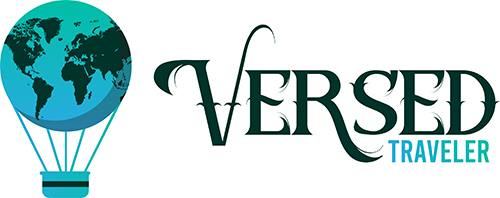Table of Contents
ToggleAre Zoos Ethical?
Visiting a zoo or an aquarium can be an enriching experience that offers insights into the animal kingdom and the conservation efforts that exist to protect it. However, with rising concerns about animal welfare and environmental ethics, it has become essential to discern whether these institutions operate ethically. To determine the ethical nature of a zoo or an aquarium, one must look beyond surface appearances and assess various factors that contribute to the overall well-being of the animals and the integrity of the establishment’s conservation efforts.
Are Zoos Ethical?: Overview
Key factors include the health and living conditions of the animals, the institution’s role in conservation beyond captivity, and the ethical management and operations of the facility. It is important to evaluate whether the animals are provided with habitats that closely mimic their natural environments, sufficient space to roam, and proper medical care. Additionally, ethical zoos and aquariums typically engage in genuine conservation efforts and play a substantive role in education and research, contributing to the sustainability of wildlife and natural habitats.
Are Zoos Ethical: Key Takeaways
- Ethical zoos and aquariums prioritize animal welfare, offering habitats that mimic natural environments and ensure proper animal care.
- Conservation efforts are central to the ethical operation of such institutions, with active participation in preservation and education.
- Assessing management practices and operational transparency helps in identifying the ethical standards maintained by zoos and aquariums.
Are Zoos Ethical? Considerations in Zoos and Aquariums

When determining the ethics of zoos and aquariums, it’s important to assess factors such as animal welfare, the institutions’ role in conservation and research, educational impact, the balance of entertainment versus education, and adherence to strict accreditation standards.
Are Zoos Ethical: Animal Welfare Standards
Animal welfare is at the core of ethical considerations for zoos and aquariums. Ethical institutions implement enriching habitats that simulate natural environments, provide necessary veterinary care, and ensure animals are both mentally and physically stimulated. These standards are often outlined by organizations such as the Association of Zoos and Aquariums (AZA) and the European Association of Zoos and Aquaria (EAZA), which champion high levels of care.
Are Zoos Ethical: Conservation and Research Initiatives
Ethical zoos and aquariums actively participate in conservation and research efforts aimed at preserving species and habitats. This includes captive breeding programs designed for reintroduction to the wild, and scientific studies that contribute to wildlife conservation strategies. Transparency in these initiatives is key for public trust and support.
Are Zoos Ethical: Educational Value for the Public
The educational value offered by an institution is indicative of its ethical standards. Reliable zoos and aquariums should present accurate, research-based information and straddle the line between engaging visitors and imparting knowledge about biodiversity and conservation. Interactive programs and clear educational messages are signs of a commitment to public enlightenment rather than pure entertainment.
Are Zoos Ethical: Entertainment Versus Education
An ethical institution will prioritize education over entertainment. While zoos and aquariums are recreational venues, their role is to educate the public on ethical concerns related to wildlife without compromising the dignity or wellbeing of the animals. Live demonstrations and interactions, if conducted, should focus on promoting respect and understanding of the species.
Are Zoos Ethical: Accreditation and Regulatory Compliance
Finally, an ethical zoo or aquarium should have proper accreditation by recognized entities like AZA or EAZA, which signifies adherence to rigorous healthcare, habitat, and conservation standards. Compliance with local and international regulations is also critical, as it demonstrates the organization’s commitment to lawful and ethical operation in the field of animal care and exhibition.
Are Zoos Ethical: Animal Health and Living Conditions

Assessing a zoo’s ethical standards involves closely examining the health and living conditions of the animals. This includes the quality of their enclosures, ongoing medical care, opportunities for behavioral enrichment, and the management of captive breeding programs.
Are Zoos Ethical: Quality of Enclosures and Facilities
Zoos that prioritize animal welfare ensure that enclosures are spacious, secure, and mimic natural habitats to support the animals’ well-being. They must offer adequate shelter, space for exercise, and complexity to encourage exploration and mental stimulation. The design of these facilities is essential for maintaining animal health and promoting psychological wellness.
Are Zoos Ethical: Nutrition and Medical Care
Nutrition is tailored to the specific dietary requirements of each species, reflecting what they would naturally consume in the wild. Regular medical care is vital, with veterinary staff providing preventative treatments, timely emergency care, and ongoing health assessments to prevent disease and injury.
Are Zoos Ethical: Behavioral Enrichment and Natural Behavior
Enrichment programs are essential for encouraging natural behavior and preventing zoochosis, a condition marked by repetitive and harmful behaviors due to stress. Zoos with high ethical standards offer sensory stimuli, physical challenges, and social interaction through enrichment activities that promote psychological health and mimic natural behaviors.
Captive Breeding and Population Management
Ethical zoos participate in responsible captive breeding programs aimed at species conservation. They manage animal populations carefully, focusing on genetic diversity to ensure healthy reproduction. These programs often include plans for species reintroduction to the wild, contributing to the conservation of endangered species.
Are Zoos Ethical: Conservation Efforts Beyond Captivity
Ethical zoos engage in conservation efforts that extend beyond the confines of their facilities. By supporting species reintroduction, preserving natural habitats, and backing global wildlife conservation initiatives, they contribute significantly to biodiversity and the fight against the extinction of critically endangered species.
Are Zoos Ethical: Species Reintroduction Programs
Species reintroduction programs are critical for restoring critically endangered species to their natural environments. Successful reintroduction efforts can bolster wild animal populations that are at risk of becoming extinct, and help to maintain ecological balance.
- Example: Zoos Victoria has been involved in the reintroduction of the Eastern Barred Bandicoot into areas where the species had disappeared due to loss of habitat and predation by invasive species.
Are Zoos Ethical: Habitat Preservation Initiatives
Habitat preservation is essential for sustaining wildlife conservation. By protecting and restoring natural habitats, ethical zoos ensure that wild animals have a safe home to return to, thus supporting the overall health of various ecosystems.
- Initiative: The creation of natural reserves where human interference is minimal and ecosystems can recover and thrive.
- Impact: This approach not only helps protect existing animal populations but also provides a potential site for future species reintroductions.
Are Zoos Ethical: Supporting Global Conservation Projects
Zoos that are truly ethical extend their reach by supporting or partnering with global conservation programs. These projects can take many forms, from providing financial resources to sharing expertise.
- Partnership: These alliances often result in significant progress towards preserving biodiversity and aiding critically endangered species.
- Outcome: Strategic collaborations often result in enhanced conservation efforts, with tangible benefits for wildlife conservation across the globe. An example is the support of global Tiger conservation projects, which aims to prevent the extinction of this iconic species.
Are Zoos Ethical: Ethical Management and Operations
Effective ethical management and operations in a zoo encompass the meticulous care for animals’ welfare, ensuring that staff expertise and safety protocols are upheld, responsible use of funding and donations, as well as fostering partnerships with sanctuaries and rehabilitation centers.
Staff Training and Expertise
It is crucial that zoo staff have specialized training in animal care and welfare. Expertise in zoology, veterinary medicine, and conservation biology is fundamental. The Global Federation of Animal Sanctuaries plays a role in setting standards for care, which indicates that professional development and continuing education for zoo staff are vital.
Safety and Emergency Protocols
Robust safety and emergency protocols protect both the animals and visitors. Zoos must be equipped with containment systems and have procedures for dealing with natural disasters, escapes, and other emergencies. This involves regular drills and clear communication channels, ensuring that safety remains a top priority.
Funding and the Role of Donations
Ethical zoos are transparent in their use of funding and donations. These financial resources are allocated towards improving living conditions for animals, conservation efforts, and education programs. Donations often provide critical support for these initiatives, reflecting a zoo’s commitment to its ethical responsibilities.
Collaborations with Sanctuaries and Rehabilitation Centers
Collaboration with sanctuaries and rehabilitation centers underscores a zoo’s dedication to animal welfare. These partnerships allow for the sharing of best practices and expertise, facilitating the effective rehabilitation and release of animals whenever possible. Zoos linked with the Global Federation of Animal Sanctuaries typically engage in conservation and rehabilitation efforts, demonstrating a global perspective on ethical wildlife care.
Are Zoos Ethical: Challenges and Controversies in Zoo Ethics
Zoo ethics encompasses a range of complex issues, particularly the welfare of captive animals and the conservation mandates many zoos claim to uphold. Dissecting these matters unveils numerous challenges and controversies.
Dealing with Controversial Species Exhibits
Certain species, like polar bears and elephants, have become central to the controversy surrounding zoos. The natural roaming ranges of these animals far exceed the confines of even the most expansive zoo enclosures, raising ethical questions about their quality of life and psychological well-being. Instances of zoochosis in these animals have been observed, manifesting in repetitive and harmful behaviors due to stress from confinement.
Are Zoos Ethical: Impact of Captivity on Genetic Diversity
Genetic diversity is a vital component of animal conservation, but it can be compromised in captivity. Zoos and aquariums often house a limited number of specific endangered animals, which can result in a genetic bottleneck. This lack of diversity can lead to health issues and reduced adaptability, challenging the notion that captivity aids conservation efforts.
Are Zoos Ethical: Public Perception and Cultural Shifts
Public opinion on zoos and aquariums is ever-evolving. The story of the “Tiger King” brought to light the darker side of private animal ownership and roadside zoos, fundamentally altering public perception and increasing scrutiny on animal ethics. This shift is also reflected in how the public reacts to high-profile cases, such as the shooting of Harambe at the Cincinnati Zoo, spotlighting how zoos manage animal and visitor safety, alongside animal welfare.
Are Zoos Ethical: The Future of Zoos and Aquariums

The futures of zoos and aquariums hinge on their ability to evolve with advancements in science and heightened ethical standards, addressing both the welfare of animals and global issues such as climate change.
Innovations in Animal Care and Enclosure Design
In response to critical insights from research and public expectations, zoos and aquariums are reimagining animal care and enclosure design. They are pioneering the development of more naturalistic habitats that enable a range of species to engage in instinctive behaviors, thus enhancing their quality of life. Notable enhancements include enrichment tools that stimulate cognitive function and physical activity, and the creation of intricate ecosystems within enclosures that reflect animals’ native environments. Reputable zoos and aquariums are prioritizing these innovations to pave the way for a future where animal welfare is paramount.
Are Zoos Ethical: The Role of Zoos in a Changing Climate
As our climate changes, zoos and aquariums assume a vital role in educating the public about the impacts of climate change on wildlife. By integrating climate literacy into their programs, they help visitors understand the importance of conservation efforts. Zoos and aquariums are also becoming sanctuaries for species threatened by changing environments, acting as a bulwark against the loss of biodiversity. Research programs at these institutions contribute to conservation science, identifying ways to mitigate climate effects and supporting species that are vulnerable to extinction.
Advancing Research for Wildlife Conservation
Today’s reputable zoos and aquariums are not just about displaying animals; they are centers for wildlife conservation research. They play a critical part in studying animal behavior, genetics, and reproductive biology, which provides valuable data to combat poaching and habitat loss in wild populations. By collaborating with global conservation efforts, these institutions leverage their expertise and resources to contribute to in-situ and ex-situ conservation projects. Their work often extends beyond their walls and into the wild, where they apply scientific findings to protect and rebuild populations of endangered species.
Are Zoos Ethical: Case Studies and Exemplary Models
In evaluating the ethical standards of zoos, it is essential to examine specific case studies and exemplary models that showcase the best practices in successful breeding programs, committed conservation efforts, and the transformation of institutions in response to criticism.
Successful Breeding Programs
Leading ethical zoos often maintain comprehensive studbooks and engage in captive breeding to manage and support the genetic diversity of endangered species. For example, the California Condor recovery program illustrates a successful breeding program with a dramatic rebound in population numbers, largely due to the rigorous efforts of conservationists and zoologists at various North American zoos.
Zoos Leading in Conservation
Zoos that are recognized as leaders in conservation typically participate in global conservation programs and are often accredited by the World Association of Zoos and Aquariums (WAZA). These institutions prioritize not only species survival but also habitat restoration and support for field research, setting a standard for ethical zoos around the world.
Transformation of Institutions Following Criticism
Accredited zoos have shown their capacity to transform following public and expert criticism. They have shifted their focus toward more ethical practices by enhancing animal welfare, educating the public, and increasing their support for global biodiversity conservation efforts. This ongoing process indicates that zoos can evolve into more ethically and ecologically responsible institutions.
Click here for a list of the 14 most ethical zoos in the US
Are Zoos Ethical: Measuring Ethical Practices
Determining if a zoo is ethical involves meticulously assessing animal welfare metrics and monitoring conservation outcomes. These factors are pivotal in understanding how a zoo operates and the impacts of its practices.
Are Zoos Ethical: Assessing Animal Welfare Metrics
Animal welfare is at the heart of ethical zoological institutions. These establishments use quantitative tools to measure a range of welfare indicators, including physical health, behavior, and reproduction. For example, a zoo adhering to ethical standards provides spacious and enriched facilities that mimic an animal’s natural habitat, thereby supporting both their physical and psychological well-being. Key welfare metrics consist of:
- Physical Health: Routine veterinary checks and records of nutritional diets.
- Behavioral Normalcy: Observation logs that track patterns indicative of contentment or distress.
Monitoring Conservation Outcomes
Ethical zoos are also characterized by their active conservation efforts. Conservation-oriented zoos participate in breeding programs for endangered species and invest in research that contributes to the preservation of wildlife. They typically track their progress with concrete outcomes, such as:
- Species Reintroductions: Documented cases where animals have been successfully returned to their natural environments.
- Research Contributions: Publications and studies that have directly influenced conservation policies.
Are Zoos Ethical: Frequently Asked Questions
When visiting a zoo, it is critical to consider its ethical practices. This guide addresses common inquiries related to the ethics of animal care and conservation efforts in zoological parks.
What are the indicators of an ethical zoo?
An ethical zoo prioritizes the welfare and conservation of its animals. It provides spacious habitats, simulates a natural environment, and ensures physical and mental stimulation for the animals in its care.
How can you tell if a zoo upholds high welfare standards for its animals?
High welfare standards in a zoo are evident when animals are provided with a clean living environment, appropriate medical care, and diets that meet their nutritional needs. Observing the behavior of animals can also indicate good welfare; animals should be active and show natural behaviors.
What ethical certifications or accreditations should a reputable zoo have?
A reputable zoo typically holds accreditations from recognized organizations such as the Association of Zoos & Aquariums which set rigorous standards for animal care, conservation, and education.
What are the signs of mistreatment of animals in a zoo?
Signs of mistreatment in animals include visible signs of neglect or abuse, such as malnutrition, wounds, or signs of distress, like repetitive pacing or self-harm. These behaviors often point to inadequate care and lack of enrichment activities.
How does a zoo contribute to conservation and education?
An ethical zoo actively participates in conservation efforts, such as breeding programs for endangered species, research projects, and public education that promotes conservation awareness.




















